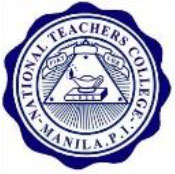MAKATI, Philippines – AC Education, Inc. (“AEI” or “AC Education), the wholly-owned education arm of Ayala Corporation, announced today that it has assumed ownership of approximately 96% of the outstanding voting shares of National Teachers College (“NTC”). AEI was selected by the NTC Board and its shareholders through a competitive bid process.
NTC is located in the University Belt, Manila and was founded in 1928, as the first school in the country to offer General Education leading to a Bachelor of Science in Education. It has a long track record of commitment to excellence in teaching, growth and inclusion, with approximately 10,000 students from Basic to Higher Education. It is one of the most well-recognized teacher education institutions in the country, with Level III Accreditation from PACUCOA for its Bachelor programs in Elementary and Secondary Education, and over 3,500 Education students in both college and graduate programs. NTC also offers programs in Accountancy & Business, Arts & Science, Hospitality Management and Information Technology.
Ayala Corporation started investing in the education sector in 2012 through AEI, with a vision of empowering Filipino parents and their children by delivering inclusive, quality education that enables significantly improved employability for its high school and college graduates. AEI achieves this through proprietary student value-add programs, experiential and industry-based curricula, systematic teacher training, an emphasis on values and life skills, and a strong employer-partner network. AEI’s programs have consistently and significantly improved the average hiring rates and starting salaries of its graduates.
In Basic Education, AEI has built the largest chain of stand-alone, private high schools in the country, Affordable Private Education Center, Inc. (“APEC Schools”). APEC Schools began in 2013 with one school site and 130 students. Since then, it has scaled up to over 16,000 students, with 23 branches across Metro Manila, Cavite, Rizal and Batangas. APEC Schools offers Junior High School and Senior High School with an innovative and progressive approach to both learning and employability, in a fully-airconditioned environment at affordable price points.
AEI has also invested in the University of Nueva Caceres (“UNC”) located in Naga City, with over 8,000 students. It is the oldest and one of the largest private schools in the Bicol region, offering programs in Arts & Sciences, Basic Education, Business and Accountancy, Computer Studies, Criminology, Education, Engineering and Architecture, Graduate Studies, Law, and Nursing. Last
school year, UNC introduced an Industrial Management Engineering degree to further enhance the programs being offered by the College of Engineering and fortify UNC’s position in the region as a leader in Engineering. UNC also established a partnership with San Beda University to offer a Masters of Law program, making UNC the first university in the Bicol Region to offer the LLM program.
Together with NTC, AEI aims to help transform approximately 34,000 student lives every year through affordable, quality education.
Outgoing NTC Chairman, Atty. Rolando de Castro, stated:
“We are very grateful that several groups had expressed their sincere interest in continuing the legacy of National Teachers College as established by our forebears. In selecting the buyer who shall acquire the shares of NTC, it was important to look not only at the capability to expand the school’s horizons, but also at the alignment of values and vision for raising our Filipino youth to be excellent teachers, industry leaders, or capable, competent individuals, whatever path they may choose. We look forward to working with AC Education in this transition process and in moving NTC closer to becoming the world-class institution it was intended to be. We are honored to pass on the torch to AC Education, which we are confident will remain committed to building on the ideals upon which NTC was founded.”
During its first organizational meeting, the new NTC board elected AEI’s CEO, Mr. Alfredo I. Ayala, as its Chairman and President. Mr. Ayala stated:
“We are very pleased to be part of NTC, given its 90-year heritage, excellent track record and well-known brand in teacher education, its new and fast-growing programs in business and information technology, well-regarded faculty who are steeped in both theory and experience, employees’ unflagging dedication and vibrant school spirit. We are committed to working closely with all of NTC’s stakeholders to fulfill the vision of its founders and continue its growth momentum.”
Ayala Corporation Chairman and CEO, Mr. Jaime Augusto Zobel De Ayala, stated:
“The Ayala Group is committed to investing in the Education sector because we recognize that it is critical to building our nation. We believe that NTC can play an integral role in our efforts to contribute to a better education system in the Philippines, because of NTC’s long and successful track record in producing quality educators who go on to teach in both public and private schools.”
AEI has made significant progress in expanding its educational platform through mergers and acquisitions. In January 2018, AEI announced that it had signed a Non-Binding Term Sheet for a potential merger with iPeople, inc., the listed holding company for the education sector of House of Investments Inc. The potential merger would include iPeople and its significant subsidiary, Malayan Education System, Inc., or Mapua University, a leading private engineering and technical university in the country, and its subsidiaries, Malayan Colleges Laguna and Malayan Colleges Mindanao.
BPI Capital Corporation acted as the exclusive financial advisor of AEI for this transaction.
National Teachers College
Website: https://www.ntc.edu.ph/
AC Education
Websites:
- AEI: http://www.aceducation.ph
- APEC Schools: https://www.apecschools.edu.ph/
- UNC: http://www.unc.edu.ph/
Contact Information
AC Education and National Teachers College
Marketing
Ramy Hocson
Email: ramy.hocson@aceducation.ph
Ayala Corporation
Corporate Communications
Yla Patricia G. Alcantara
Email: alcantara.ypg@ayala.com.ph
Investor Relations Office
Celeste M. Jovenir
Email: jovenir.cm@ayala.com.ph



